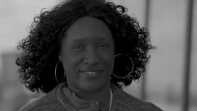In 2009, the “Spread the Word to End the Word” campaign began, when use of the R-Word (‘retard(ed)’) was incredibly frequent throughout society. The efforts substantially cut into the use of the R-Word in everyday life, but the push to see it fully eradicated from conversational norms remains an ongoing process. For context, the R-Word is the most common phrase used to demean, insult, and discriminate against people with disabilities, and it has an extremely negative effect on social and self-esteem of people it’s used against.

The frequency that derogatory language like the R-word is used against people with disabilities is staggering, and that’s a result of ingrained societal stereotypes that alienate people with disabilities and emphasize differences in one another. For people with disabilities, the R-word and other derogatory language has real effects, as illustrated by a few of the examples below.
“It hurts and scares me when I am the only person with intellectual disabilities on the bus and young people start making “retard” jokes or references. Please put yourself on that bus and fill the bus with people who are different from you. Imagine that they start making jokes using a term that describes you. It hurts and it is scary.”
The Spread the Word campaign has made significant strides in the last decade, but there is still so much work to be done to reframe the conversation into inclusive language that works for all. That work starts in the schools and on the field with Special Olympics, where key changes in how we discuss and interact with people with disabilities can be successfully implemented for generations to come.
For more on derogatory language, its impacts, and the ongoing efforts to change society’s vocabulary, visit our extensive library of resources below.
“I hate that word. It’s not nice, it’s horrible. It’s trying to say we’re stupid or something, we’re not stupid. We’ve got brains at the end of the day, we’ve got feelings, we’re human nature...So do not use the R-Word at all. If you keep using the R-Word, it’s like emotional bullets at us.”
















